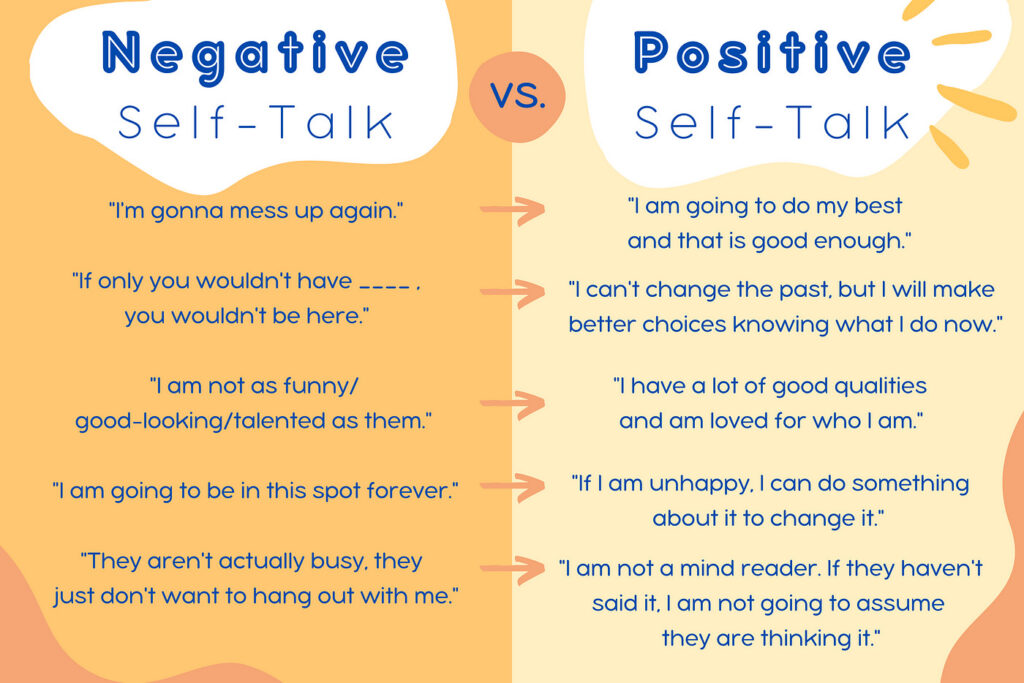
How to Overcome Negative Self-Talk and Build Confidence
This article explores the concept of negative self-talk, its impact on mental well-being, and effective strategies to overcome it. It covers techniques like mindfulness, cognitive restructuring, and self-compassion to reframe negative thoughts. Additionally, it emphasizes the importance of building confidence through positive affirmations, developing a growth mindset, and maintaining physical health. Practical advice on seeking support and practicing self-awareness is also provided, making it a comprehensive guide for fostering a healthier inner dialogue.

Negative self-talk is the internal dialogue that undermines confidence and reinforces self-doubt. It often stems from experiences of failure, fear of judgment, or deeply ingrained limiting beliefs. Consequently, recognizing these thoughts is the first step toward overcoming them.
Types of Negative Self-Talk
Negative self-talk can manifest in various forms. Some common types include:
- Personalizing: Blaming yourself for everything, even when it’s beyond your control.
- Filtering: Focusing only on the negatives while ignoring positives.
- Catastrophizing: Expecting the worst possible outcome.
- Polarizing: Viewing situations in extremes with no middle ground.
Therefore, identifying which type you often engage in can help in challenging those thoughts effectively.
The Science Behind Negative Self-Talk
Research shows that negative self-talk activates the brain’s amygdala, the center responsible for processing emotions like fear and anxiety. Furthermore, chronic engagement in negative thoughts can lead to elevated stress levels, reduced cognitive function, and even symptoms of depression.
Interestingly, neuroscientists suggest that repetitive thoughts create neural pathways, making negative self-talk a habitual response. Fortunately, through neuroplasticity, these pathways can be rewired with intentional practice.
Building Self-Awareness
Becoming aware of your inner dialogue is essential. Specifically, practice mindfulness to observe your thoughts without judgment. Additionally, journaling can be beneficial. By noting recurring negative thoughts and analyzing their triggers, you create a foundation for reframing them.
Practicing Mindfulness
Mindfulness involves focusing on the present moment and accepting it without judgment. As a result, you reduce the power of negative thoughts. Techniques like deep breathing, guided meditation, and progressive muscle relaxation can enhance mindfulness.
Reframing Negative Thoughts
Cognitive Behavioral Therapy (CBT) techniques are often used to reframe negative thoughts. One effective method is cognitive restructuring, which involves challenging irrational thoughts and replacing them with realistic, positive alternatives.
Steps to Reframe Thoughts
- Identify the Thought: Recognize the specific negative thought.
- Evaluate its Validity: Ask yourself if there is evidence supporting or contradicting it.
- Replace the Thought: Formulate a balanced, positive thought.
For example, instead of thinking “I’ll never succeed,” try “I may face challenges, but I’ll learn and grow.”
Building Confidence Through Self-Compassion
Practicing self-compassion involves treating yourself with kindness, just as you would a friend. In fact, Dr. Kristin Neff’s research highlights three essential components of self-compassion:
- Self-Kindness: Be gentle with yourself in moments of failure.
- Common Humanity: Recognize that everyone makes mistakes.
- Mindfulness: Stay present and avoid over-identifying with negative emotions.
Additionally, engaging in self-compassion exercises like loving-kindness meditation can strengthen self-acceptance.
Establishing Positive Affirmations
Positive affirmations are powerful statements that not only reinforce self-worth but also strengthen capability. In fact, when you regularly repeat affirmations like “I am resilient and capable,” you gradually, yet steadily, shift your mindset. Moreover, as you continue this practice consistently, you will eventually notice a significant boost in confidence and self-belief. Additionally, by integrating these affirmations into your daily routine, you can effortlessly replace negative thoughts with empowering ones. Consequently, over time, this simple habit can transform your overall perspective and enhance your emotional well-being.
Tips for Effective Affirmations
- Use the present tense.
- Be specific and realistic.
- Repeat affirmations daily, preferably in front of a mirror.
Moreover, consistent repetition enhances their effectiveness.

Seeking Support and Professional Guidance
Therapists, counselors, or coaches trained in CBT or Acceptance and Commitment Therapy (ACT) can provide valuable support. Likewise, group therapy and peer support networks offer encouragement and validation.
Furthermore, maintaining strong social connections can provide reassurance during moments of self-doubt.
Developing a Growth Mindset
A growth mindset, as proposed by psychologist Carol Dweck, involves believing that abilities can develop through dedication and effort. Consequently, embracing challenges, learning from criticism, and celebrating progress fosters resilience and confidence.
The Role of Physical Health
Physical health significantly impacts mental well-being. For instance, exercise releases endorphins, which reduce stress and boost mood. Similarly, adequate sleep and a balanced diet further support emotional resilience.
Therefore, consider activities like yoga, walking, or strength training to build both physical and mental strength.
Talk to yourself like you would to someone you love.
Brené Brown
Conclusion
Ultimately, overcoming negative self-talk and building confidence is a journey that requires patience and persistence. By recognizing negative patterns, practicing self-compassion, and embracing a growth mindset, you can reshape your inner dialogue. Additionally, seeking support when needed, celebrating small victories, and remembering that self-confidence grows through consistent effort and belief in yourself will help you achieve lasting positive change.






